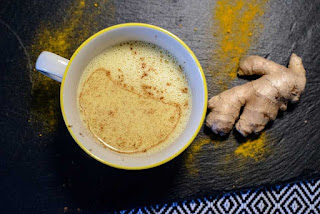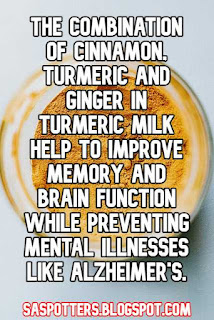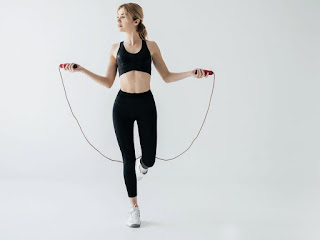We all know that high-calorie food can derail your weight loss plans. Unhealthy beverages can do the same - and so can healthy drinks if they are high in calories. People tend to focus on their food and forget about the beverages that they consume when they are trying to lose weight.
Don't fall prey to this subtle trap. Liquids can increase your caloric intake significantly without reducing your appetite if you're not careful. Give equal importance to the drinks that you drink if you want to succeed at losing weight.
10 Low calorie drinks that help with weight loss
1. Water
Water should be the main item on your beverage list. Get into the habit of drinking this most of the time for the sake of your health - regardless of whether you want to lose weight or not.
This may interest you: Hot water for weight loss
Drinking more water is one of the simplest and most important ways to improve your overall health. It may also benefit your waistline. We often mistake dehydration for hunger.
Water may help to keep you full in between meals and also increase the number of calories that you burn. A healthy metabolism needs water to flush out toxins and byproducts while transporting blood with precious nutrients and energy to the rest of your body.
Drink water before each meal to reduce calories consumed
Simply drinking a glass of water before your meal will reduce the amount of food or calories that you consume. This study found that drinking 500 ml (18 ounces) of water before each meal resulted in a 44% greater loss in weight after 12 weeks compared to those who didn't.
Cold water increases the amount of calories that you burn while resting
Cold water increases your basal metabolic rate (the amount of calories that you burn without exercise). Your body burns calories when it needs to warm itself up or cool itself down.
This study found that overweight children increased their resting metabolism by 25% when they drank cold water. The effect lasted for about an hour.
500 ml of water increased metabolism by 24% over the course of an hour after ingestion in this study.
2. Coconut water
Coconut water is more than a refreshing drink. It is a great option to replenish your body’s electrolytes after a sweaty exercise session or after a hot day at the beach. Coconut water has more potassium (and fewer calories) than regular sports drinks.
The best part is that it is free from added sugars, sweeteners, colorants, flavor enhancers, preservatives and other unhealthy chemicals that you can expect to find in processed beverages - if you drink 100% natural coconut water.
It is a great hydration option because of the antioxidant and essential mineral content.
There are 45.6 calories per cup of coconut water - so be sure not to drink unlimited amounts if you want to reduce your calorie intake. Save this treat for special occasions like after your workout.
3. Green tea
All the hype that you've heard about the health benefits of green tea is legit.
It contains a rich concentration of flavonoids, polyphenols and antioxidants that protect your body from cellular damage, carcinogens (which are cancer causing substances), free radical damage and general wear and tear.
EGCG, an abundant antioxidant in green tea, is used in most weight loss pills.
This may interest you: 7 unexpected benefits of green tea that you'll kick yourself for not knowing
These ingredients in green tea also help to stop tumor growth by neutralizing free radicals in the body.
Green tea may also guard against heart disease by relaxing blood vessels, reducing blood pressure and inhibiting the formation of blood clots that trigger heart attacks and strokes.
Green tea also contains fluoride which prevents tooth decay, stops bad breath and strengthens teeth.
The flavonoids in green tea may strengthen bones as well. This reduces the risk of osteoporosis.
4. Soy milk
Soy milk contains soluble fiber, soy protein and other beneficial plant compounds. These compounds lower bad cholesterol levels and triglycerides, which reduce the risk of heart disease.
If you drink soy milk instead of cow's milk, try to buy soy milk fortified with calcium, Vitamin A and Vitamin D. These nutrients are extremely important and most people who follow the typical western diet don't get enough of them.
5. Low sodium tomato juice
Processed tomato products are very rich sources of an antioxidant called lycopene.
This antioxidant has been associated with a reduced risk of lung, stomach, pancreatic and breast cancer. It may also protect the heart and lungs from oxidative damage. This help to ward off heart disease.
The strong antioxidant activity of tomato juice also has a protective effect against UV radiation for the skin.
Choose a tomato juice with as little sodium as possible. Excess sodium intake is linked to high blood pressure, hypertension, heart disease and stroke and kidney disease. Most processed foods are very high in sodium in order to increase their taste and most people who eat a lot of processed foods already consume much more sodium than they need.
6. Cranberry juice
A compound in cranberry juice called NDM inhibits bacteria from sticking to the gums and teeth.
You need to be careful of fruit juices because of their high sugar content - especially if you want to lose weight. This drink serves as a nice treat if you have an overbearing craving for something sweet. Limit your intake one glass (six to eight ounces) of cranberry juice per day.
We recommend making it yourself for the best health benefits, but make sure that the label says 100 percent fruit juice (not juice drink, cocktail or concentrate) if you are going to buy it ready-made.
7. Coffee
Coffee contains caffeine which acts as a stimulant. This can help with weight loss.
Many weight loss pills have high amounts of caffeine. Pre-workout supplements also generally have high amounts of caffeine because it increases energy levels.
Caffeine may also work as an appetite suppressant. It may therefore reduce energy intake and boost your metabolism (the amount of calories that your body burns throughout the day) to help you lose weight.
One study investigated the appetite-suppressing effects of caffeine. Those who drank coffee containing 6 milligrams of caffeine per kilogram of body weight consumed significantly fewer calories than those who consumed less or no caffeine.
Try to get used to having your coffee without milk, cream, sugar or sweeteners. All of these things may increase your calorie count or lead too weight gain - even sweeteners.
8. Maple water
Maple water is very different to maple syrup. It is made from unprocessed tree sap. Maple water is 98% water - and free from the additives and preservatives that can wreak havoc on our health.
It has a slightly sweet taste with a little bit of natural sugar and 15 calories per 8-ounce glass.
Similar to coconut water and cranberry juice, this beverage is healthy for you - but don't overdo it. The small amount of sugar can add up quickly if you drink too much of it. Save this tasty beverage for after your exercise session or for when you crave something sweet to drink.
9. Low sugar protein powder
Whey, casein, pea or hemp protein powder all gives you the same effect: fullness. Protein is an amazing choice if you need to reduce hunger and feel fuller for longer.
It is also super convenient and easy to mix with water so that you have something to make you full before you choose something unhealthy out of hunger.
As a result of the fullness, you will eat fewer calories after a protein shake. This helps with cutting down your calories.
Protein also plays a vital role in your body’s cell functions and your body's ability to replace or rebuild muscle after exercise. A protein shake is a healthy drink to add to your daily routine while getting good nutrients.
There are many protein shakes that are made specifically to help people who want to lose weight.
Protein powder isn’t as low in calories as the other beverages on this list because protein has 7 calories per gram. It is still possible to find a good option under 200 calories per serving. Check the nutrition label and avoid added sugars or other unhealthy ingredients.
I would personally look for an option that is high in protein, low in sugar and has added vitamins and minerals. It would be a bonus if you could find one with fiber as well.
10. Vegetable juices
Getting your recommended daily dose of vegetables can be very difficult. While you still need to eat plenty of raw fruit and vegetables, vegetable juice can help you to get some of their vitamins, minerals, antioxidants and plant compounds on the go.
Vegetable juice increases your intake of these precious nutrients and may even help you to lose weight.
Avoid high-sugar ingredients and stick to low-calorie drinks like celery juice. Carrot juice is one of the healthiest options when it comes to vegetable juice.
 |
| 12 Home remedies to make your tan disappear |
 |
| 9 Health benefits of eating guava |
 |
| Can running every day help you live longer? |




















































